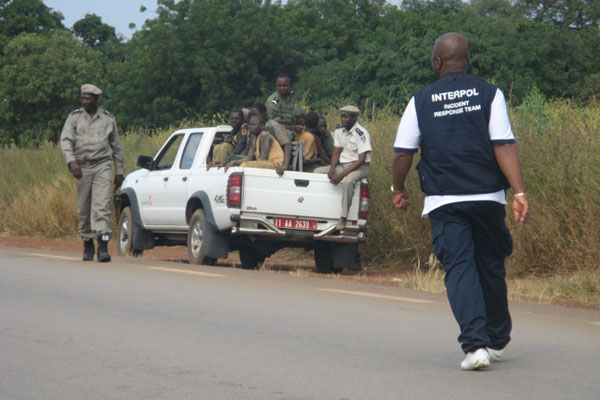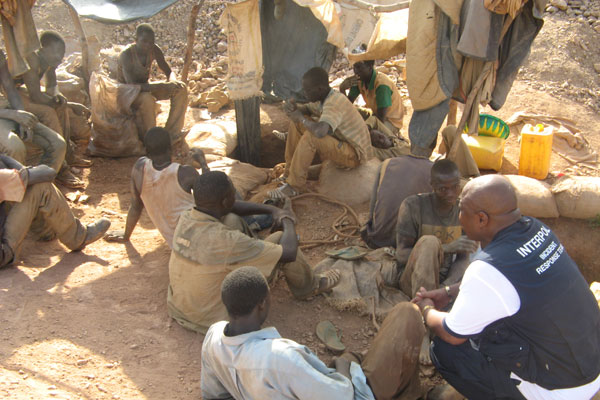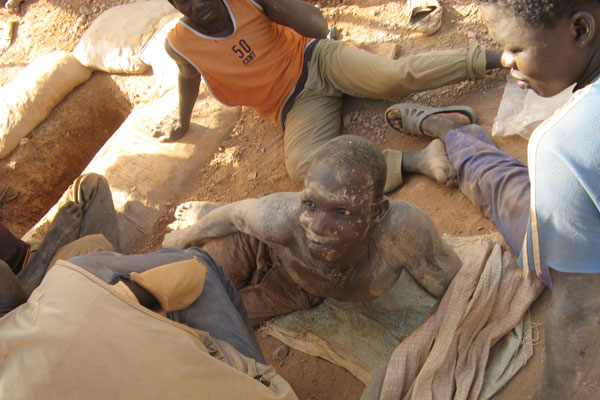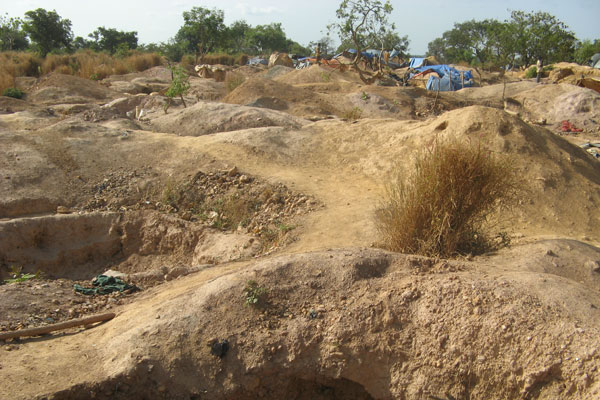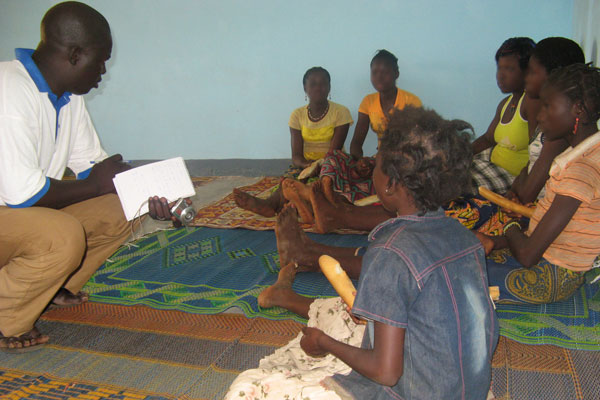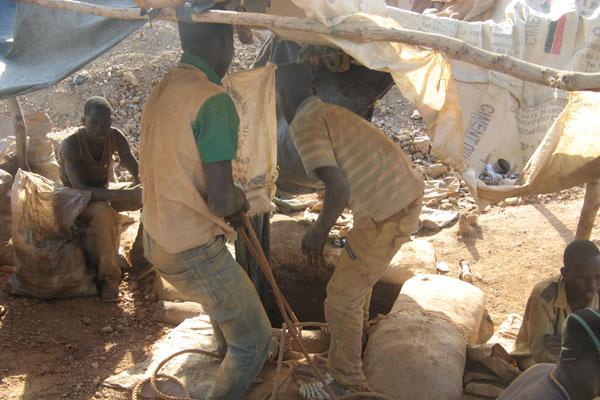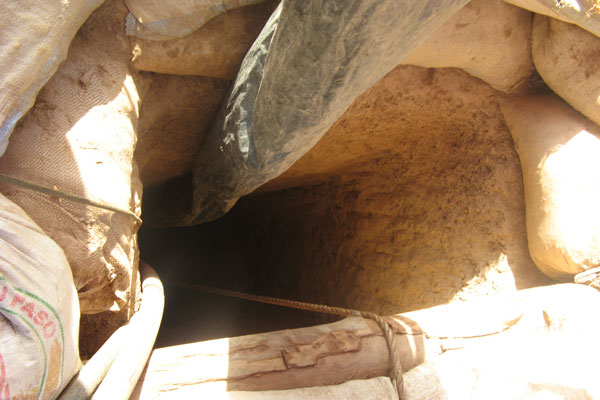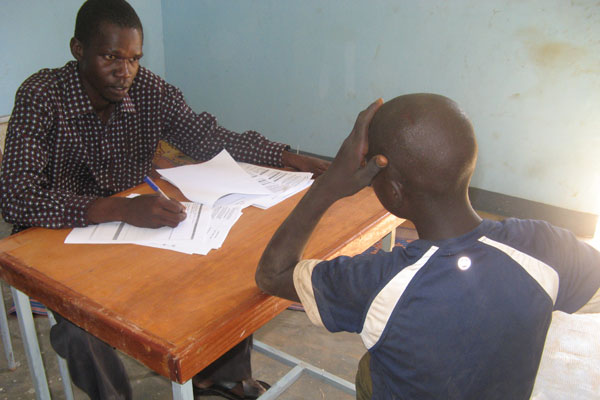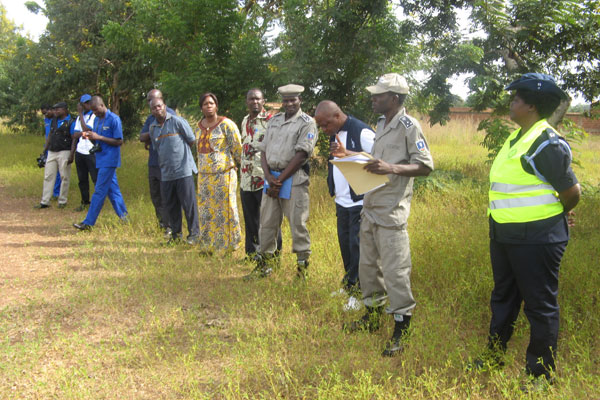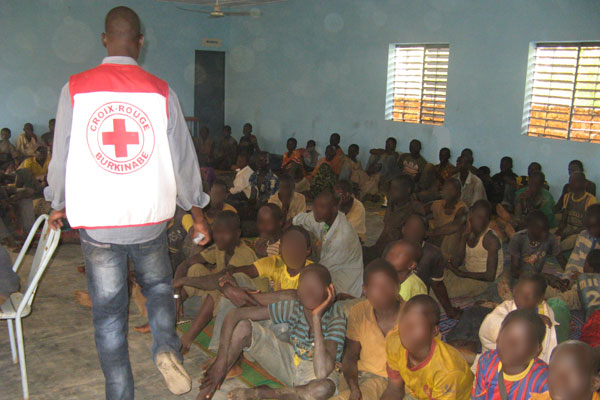OUGADOUGOU, Burkina Faso – Nearly 400 child trafficking victims, some as young as six years old, forced to work in illegally-operated gold mines and cotton fields have been rescued following an operation by police in Burkina Faso coordinated by INTERPOL.
Some 165 police officers, together with officials from customs, social and health services took part in Operation Tuy which targeted sites in Ougadougou, Houndé and Bobo Dioulasso, resulting in 73 individuals being arrested in connection with child trafficking and labour offences.
During the two-day (29 and 30 October) operation, 387 children were discovered working under extreme conditions, lowered into narrow, airless mining holes up to 70 metres in depth, receiving no salary or education, with young girls often also subjected to sexual abuse. The victims have now been returned to their families or taken into care by social services.
“This was the largest operation of its kind run in Burkina Faso supported by INTERPOL and its success is a direct result of the commitment and support of the government, police and other agencies,” said Henri Guida Blemin, specialist officer with INTERPOL’s Trafficking in Human Beings unit which helped coordinate the operation.
“The conditions under which these children are forced to live and work are horrific, and INTERPOL will continue to work closely with all its member countries to identify and stop the exploitation of these innocent victims and help them regain the childhood they deserve,” added Mr Blemin.
Prior to Operation Tuy, more than 100 officials from the national police, gendarmerie, customs, welfare, water and forestry services took part in a three-day specialist course. Training was provided by specialist officers from the INTERPOL International Trafficking in Human Beings Task Force, including from Canada, the Regional Bureau in Abidjan as well as its National Central Bureau in Ougadougou, in addition to police, health and education specialists from Burkina Faso.
“The success of the operation is not just about the number of victims rescued, but it is also about making sure the infrastructure and knowledge is in place for this important work to continue, which is why the training is just as important as the fieldwork. If the officers don’t have the skills they cannot do their work and efforts achieved cannot be sustained,” said Mr Blemin.
“Information gathered during the operation will also help in identifying and dismantling the criminal networks behind this crime at the national, regional and international levels,” he added.
Tuy is INTERPOL’s fifth operation targeting forced child labour in Africa. Operations Bia (2009), Cascades and Bana (2010) and Bia II (2011) have already led to the rescue of more than 400 children across Central and Western Africa and the arrest of 93 individuals.




